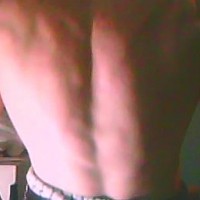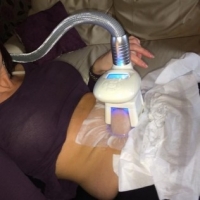Lose Weight > Weight Loss Tips > Weight Loss Articles > Gastric Bypass Surgery Arkansas: Comprehensive Program Is The Key To Permanent Weight Loss
Gastric Bypass Surgery Arkansas: Comprehensive Program Is The Key To Permanent Weight Loss
In gastric bypass surgery part of the small intestine, where most calories are absorbed after passing through the stomach is bypassed. By bypassing part of the lower intestine, the stomach also becomes smaller than it was before the procedure. Having a smaller stomach means you feel full faster and consequently eat less than you did when your stomach was still its original size. Less food means less caloric intake and the bypass also reduces the amount of calories absorbed by the lower intestine. All of this leads to fewer calories over all and subsequent weight loss by the patient.
Because the patient is now limited in the amount of food they consume, diet becomes even more important than ever. After gastric bypass surgery you will have to take more time to eat, chewing food thoroughly at each meal. Also, because the stomach itself can now only hold a few ounces of food you will be limited with beverages as well. You will not have room for a drink and a meal; therefore, no drinks are suggested for 30 minutes before or after each meal. Protein is also an important component of your daily diet. It is generally recommended that 60 to 70 grams of your diet consist of protein in the form of low fat after the surgery. Because part of the lower intestine is bypassed, the body has a more difficult time digesting fat after the procedure and too much can cause nausea for patients. The same can be said for sugary foods. Sweet snacks that the body tolerated before are now likely to cause significant upset.
Exercise also becomes much more vital after gastric bypass surgery. Because you will be consuming and absorbing fewer calories your body could essentially start to react as though it was starving. As it starts to look for new ways to get energy it can begin burning muscle instead of fat. The best way to counteract this is to begin exercising as soon as possible after the surgery. Exercise works to alter the metabolism and guide the body toward burning fat instead of muscle thus helping you lose weight more rapidly.
As gastric bypass surgery is a very effective weight loss surgical solution, it is very important to fully research and become knowledgeable of all aspects of the procedure before surgery. It is also imperative to find a comprehensive program that has a multidisciplinary bariatric team to assist you through the entire journey, before and after surgery.
Related Articles
-
Weight Loss - How to be an Effective and Ensure that the Weight you Lose Stays Off
Many have tried to lose weight, but few have succeeded. Must be an ef
-
How to Build a Better Workout Program
-
What the Diet Industry Wont Tell You--6 Secrets Revealed
I am not a diet and fitness guru or an obesity exper
-
A Warning of the Complications of Gastric Bypass Surgery
Gastric bypass surgery involves stapling the stomach
-
Understanding your Metabolism
Our metabolic rate determines the rate at which we burn up our food, a
-
Is Lap Band Too Risky?
Back in December Tamara Walter, 52, died three days after undergoing
- DON'T MISS
- Stay Beautiful Diet - The Real Diet Solution
- 5 Healthy Diet Tips for Maximum Weight Loss
- The Diet That Changed Her Life
- The History of Pilates
- Acai Breeze - Power from the Brazilian Berry Diet
- Canadian Pharmacy Warns Adults on the Possibility of Fat Weight Regain
- Use Your Bodys Natural Hormones For Permanent Weight Loss
- 3 Great Fat Loss Tips for summer.
- Fat Burning Furnace - Lose 10 Inches of Fat in Just 7 Weeks?
- Fat Burning Furnace - Health Weight Loss Program for Those With Big Amounts of Fat to Lose!




